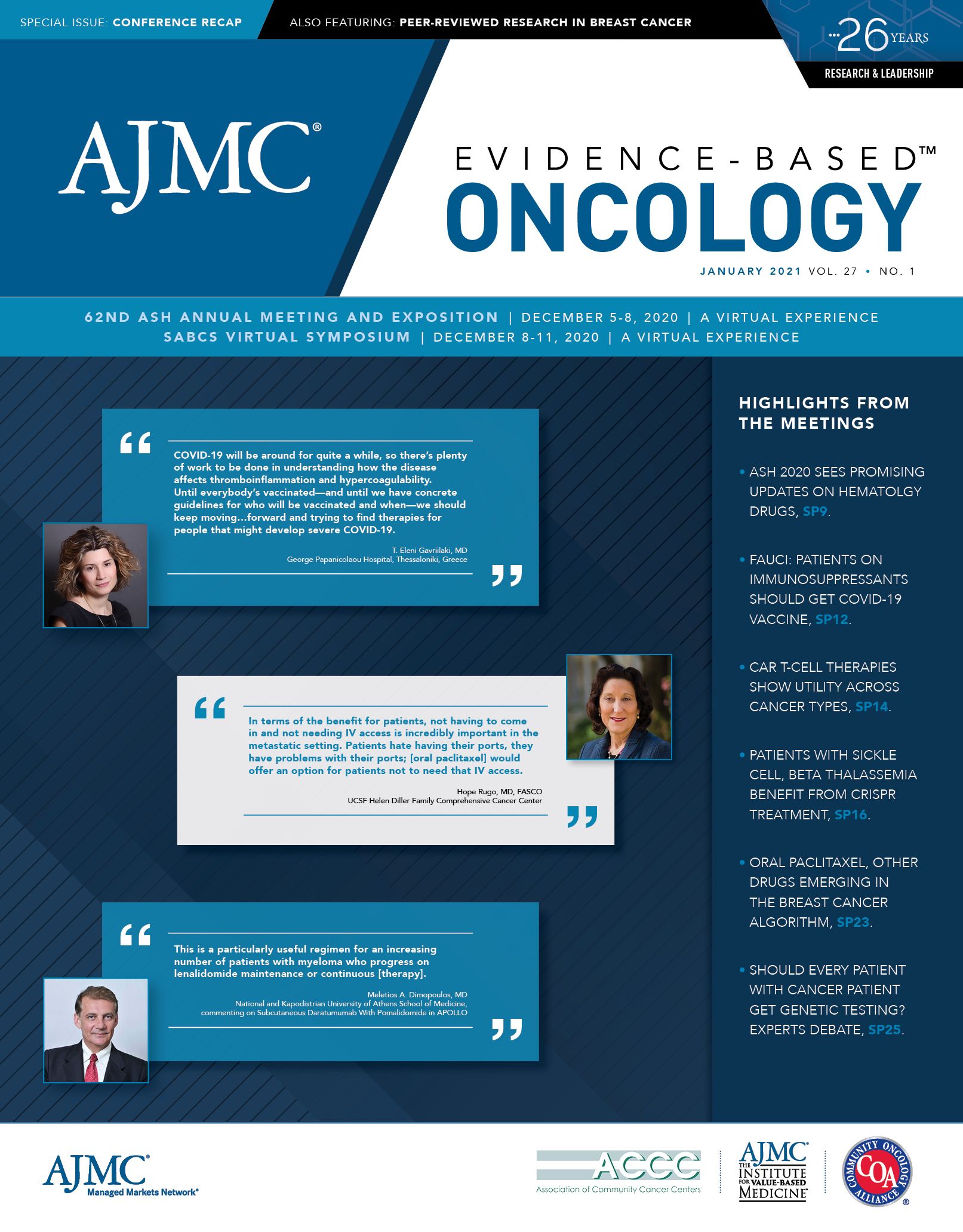- Center on Health Equity & Access
- Clinical
- Health Care Cost
- Health Care Delivery
- Insurance
- Policy
- Technology
- Value-Based Care
Lauren M. Corduck, Founder of Oneinforty, Dies at 49; Advocated for Change in BRCA Testing Guidelines
Lauren M. Corduck, who turned a diagnosis of ovarian cancer into a crusade to educate others with similar genetic mutations, died on December 24, 2020. She was 49.
Lauren M. Corduck, who turned a diagnosis of ovarian cancer into a crusade to educate others with similar genetic mutations, died on December 24, 2020. According to her obituary, she died peacefully at Care Dimensions Hospice House in Lincoln, Massachusetts. She was 49.
Corduck founded Oneinforty, named for the odds that she and others of Ashkenazi Jewish heritage have of carrying a BRCA1/2 mutation, which raises the risk of developing breast cancer, ovarian cancer, or prostate cancer. Corduck did not want anyone else to suffer her fate. She endured months of unexplained back pain before receiving back-to-back diagnoses, a BRCA1 mutation, and stage IV ovarian cancer.
No doctor recommended the genetic test. Corduck’s friend, who had breast cancer, was the one who suggested it to her. After receiving a diagnosis of the mutation, Corduck had an MRI and learned of cancer that had spread throughout her body.
While receiving chemotherapy in 2017, Corduck launched Oneinforty to raise awareness among those who should be screened for BRCA mutations and provide support for those who carried these mutations.
Her impact was immediate. Corduck freely shared the story of her family’s trauma, of never being told about the risk both she and her father faced because of their Eastern European Jewish heritage, and the breast cancer history in her father’s family. Both should have been referred for genetic testing by a primary care physician. She said during a 2018 presentation for the National Comprehensive Cancer Network (NCCN), her cancer diagnosis “was entirely avoidable.”
Her presentation at the NCCN Patient Advocacy Summit in December 2018 highlighted her awareness that having genetic testing was not enough—if payers didn’t cover the tests, most individuals would lack access. She joined forces with other advocates to press NCCN to recommend testing for the 3 founder mutations of BRCA1/2 in all persons with at least 1 grandparent of Ashkenazi Jewish heritage, regardless of family cancer history. An NCCN recommendation would open the door to better payer coverage.
Corduck’s campaign contributed to AJMC®’s decision to publish a special issue of Evidence-Based Oncology™ in August 2019 focused on hereditary cancers and genetic testing. The issue featured Corduck’s commentary, which was quoted in The Boston Globe article on her life.
“We need the United States health care system to meet us where we are—largely uninformed, underserved, grief-stricken, and anxious to face our high risk of having hereditary cancer syndrome,” Corduck wrote. She argued that population screening for BRCA mutations is not only cost-effective but may be the only answer for those whose family history is unknown. “We should routinely be given the opportunity to find out our BRCA status before cancer strikes.”
By December 2019, a year after Corduck’s NCCN appearance and 3 years after her BRCA diagnosis, the NCCN updated its guideline to reflect much of the request. The relevant guideline was renamed “Genetic/Familial High-Risk Assessment: Breast, Ovarian, and Pancreatic”, and it was expanded to include individuals with Ashkenazi Jewish heritage but no known family history of the BRCA cancers with certain requirements. Testing for the 3 founder mutations of BRCA1/2 may be offered to unaffected men and women as early as age 18 to 25 years, who have 1 grandparent identified as Ashkenazi Jewish ancestry, irrespective of cancer history in the family, as part of longitudinal studies. For those without access to longitudinal studies, testing may be provided if there is access to pretest education along with posttest counseling, additional genetic testing if indicated, and high-risk management.
Influencing payer coverage was just part of Corduck’s mission with Oneinforty. Much of her time was spent raising awareness among both health care and Jewish groups about the high risk that individuals of Jewish heritage face. Corduck wrote that news of a BRCA mutation can offer a window to act.
“These Oneinforty constituents are grateful for the opportunity to make action plans with their physicians to manage their cancer risk and inform family members who may be affected.

